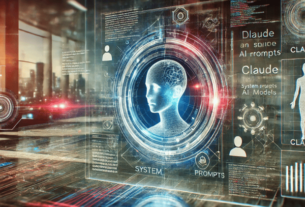
Artificial Intelligence Governance: An Analysis of Emerging Global Regulations
As the world grapples with the implications of Artificial Intelligence (AI), governments are racing to establish regulations that govern its development and deployment. The concerns surrounding AI are numerous, from data privacy and bias to safety and intellectual property. In this article, we will delve into the current state of play regarding AI regulation, exploring the differing approaches taken by regions around the world.
The Global Regulatory Landscape
According to Nerijus Šveistys, Senior Legal Counsel at Oxylabs, "The boom of the last few years has sparked a push to establish regulatory frameworks for AI governance." This is a natural development, as the rise of AI poses issues in data privacy and protection, bias and discrimination, safety, intellectual property, and other legal areas. Regions are diverging in their approach to regulation, with some opting for a more centralized and stringent framework.
The EU’s Comprehensive Model
The European Union’s AI Act has positioned Europe as a leader in AI governance. The regulation, which came into force this year, is set to be fully effective by 2026. Šveistys notes that the EU has acted relatively swiftly compared to other jurisdictions: "The main difference we can see is the comparative quickness with which the EU has released a uniform regulation to govern the use of all types of AI."
Regional Approaches
While the EU has adopted a comprehensive model, other regions are taking a more piecemeal approach. China, for example, is implementing a step-by-step strategy, while the US is adopting a more fragmented approach, with state-level initiatives driving the regulatory landscape.
Impact on Related Industries
The implications of AI regulation extend beyond the tech industry itself, affecting related sectors such as web scraping and copyright law. As AI-driven evolution transforms web scraping operations, companies in this field will face increased scrutiny. Šveistys emphasizes that "AI regulations may also bring the spotlight on certain areas of law that were always very relevant to the web scraping industry, such as privacy or copyright laws."
Copyright Battles and Legal Precedents
High-profile lawsuits have been launched against AI giants like OpenAI and Microsoft by authors, artists, and musicians who claim their copyrighted materials were used to train AI systems without proper permission. These cases are pivotal in determining the legal boundaries of using copyrighted material for AI development and establishing legal precedents for protecting intellectual property in the digital age.
What Can Businesses Do?
As the regulatory landscape continues to evolve, businesses must navigate this complex framework to avoid potential harms. Šveistys recommends that companies approach the use of copyrighted material with caution: "It is essential to evaluate the specific data they wish to collect with the help of a legal expert in the field." Continuous monitoring and adaptation are crucial in navigating the rapidly evolving AI legal landscape.
Conclusion
The AI regulatory push marks a significant moment for technological governance, with businesses worldwide facing a complex and evolving framework. Striking the right balance between fostering innovation and mitigating risks will be key to ensuring that AI remains a force for good while avoiding potential harms. As regions around the world continue to develop their approaches to regulation, one thing is clear: the future of AI will be shaped by both technological advancements and regulatory frameworks.
Further Reading
- Anthropic urges AI regulation to avoid catastrophes
- Want to learn more about AI and big data from industry leaders? Check out AI & Big Data Expo taking place in Amsterdam, California, and London.
- Explore other upcoming enterprise technology events and webinars powered by TechForge here.
Tags:
ai, ai act, artificial intelligence, china, ethics, eu, europe, framework, governance, government, law, legal, legislation, privacy, regulation, risks, society, usa






